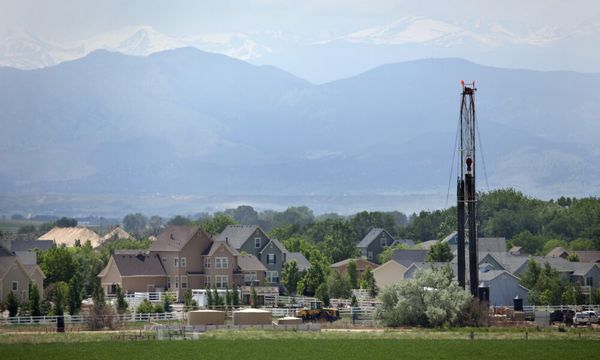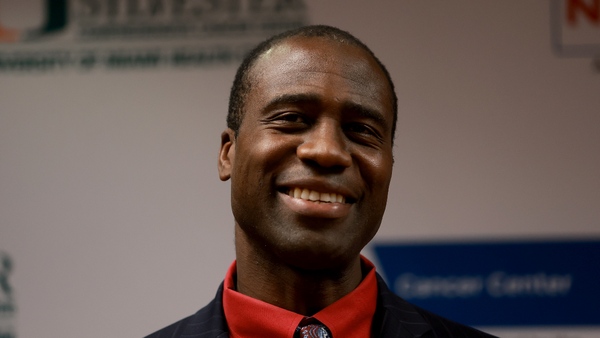Washington's top lawyer has asked a court to stop Albertsons from paying investors a $4 billion dividend set to be paid out ahead of the grocery retailer's proposed merger with rival Kroger.
The lawsuit, filed Tuesday by state Attorney General Bob Ferguson, is among the first targeting the proposed merger, which would combine the two of the largest grocers operating in Washington into a single corporation.
But at least one legal expert is skeptical the state has the authority to block the payment.
In the suit, which was filed in King County Superior Court, Ferguson argues that a $4 billion dividend would sap Albertsons' ability to keep its stores open during the years it likely would take to complete the $20 billion-plus merger. The Attorney General's Office also requested a temporary restraining order to block the dividend payment, which Albertsons expects to complete Monday, until the lawsuit is resolved.
"Paying out $4 billion before regulators can do their job and review the proposed merger will weaken Albertsons' ability to continue business operations and compete," Ferguson said in a statement Tuesday.
Concerns over potential store closures are particularly acute in Seattle and across Washington, where Albertsons, which owns Safeway, and Kroger, which owns QFC and Fred Meyer, are two of the biggest players in local grocery markets.
To get its merger approved, Kroger and Albertsons must sell hundreds of competing locations with too much market overlap to a competitor. That process, known as divestiture, could affect numerous stores in Washington.
In the greater Seattle area alone, Kroger and Albertsons each have around 80 locations, according to company data, and often appear to be the other's biggest local competitor.
Some critics worry that a cash-strapped Albertsons might be unable to maintain its divested locations long enough to be purchased by a competitor.
In Tuesday's statement, the attorney general warns that the dividend payment "could diminish Albertsons' ability to keep up on inventory orders, forcing customers to go to other grocery stores," and "could also impact employee hours."
In an emailed statement late Tuesday, an Albertsons spokesperson characterized the lawsuit as "meritless" and said the state had no "legal basis for canceling or postponing a dividend that has been duly and unanimously approved by Albertsons Cos.' fully informed Board of Directors."
The company also rejected concerns that the dividend "will somehow hinder our ability to compete in the marketplace" or "to continue investing in our stores and technology to provide an even better shopping experience while we continue to operate as an independent company, and it will not impact the agreements that we have made with unions representing our associates to increase wages and benefits."
Both the dividend and the merger are opposed by United Food & Commercial Workers Local 3000, which represents nearly 26,000 workers at 265 Kroger and Albertsons locations in Washington.
The merger has also prompted concerns from Seattle-area shoppers, who worry that some divested stores could end up closing, as happened after the 2015 merger between Albertsons and Safeway.
Ferguson's office said Kroger and Albertsons have violated state antitrust laws and the Consumer Protection Act.
The company has also claimed that the dividend was planned before merger talks began with Kroger, according to media accounts, and repeated that claim Tuesday, stating that the dividend would be paid whether the merger was completed. That appears to contradict earlier statements from Albertsons and Kroger indicating that the dividend was connected with the proposed merger, according to media accounts.
The lawsuit, which was filed Tuesday afternoon in King County Superior Court, is the latest broadside against a controversial merger that has drawn fire from regulators, unions, and shoppers.
Last week, Ferguson co-signed a letter by five other attorneys general threatening to sue Albertsons if the retailer didn't postpone the dividend payment.
According to the lawsuit, Albertsons expects to cover the $4 billion amount using $2.5 billion in cash on hand and another $1.5 billion in loans.
Albertsons needs $10 billion to operate over the next year, according to the suit, which contends that a $4 billion payment "will cripple Albertsons' ability to operate its stores and meaningfully compete with Kroger during the time before the deal closes and leave it in a weakened state if the deal subsequently falls apart."
The lawsuit argues that a similar crisis followed the 2015 Albertsons-Safeway merger: divested stores were sold to Haggen, a local retailer, but Haggen's cash reserves were so diminished by a dividend payment to its own private equity firm owner that Haggen was ultimately unable to operate the stores, many of which were eventually acquired by Albertsons. Nine of the divested locations are no longer supermarkets, according to the suit.
"The parallels ... are troubling," the lawsuit continues. "Albertsons claims that it will be sufficiently capitalized to pay the Special Dividend, but there is every reason to suspect that — in two years from now — Albertsons will be ... arguing to federal and state antitrust enforcers that it is preferable to allow Kroger to purchase its remaining assets because it is a failing firm."
Thus far, Washington appears to be the only state to follow through on a threat of legal action to halt the dividend.
And it's far from clear how effective that threat will be, says attorney Douglas Ross, an antitrust expert at the University of Washington School of Law.
Ross agrees that a dividend payment may ultimately be relevant when federal and state antitrust regulators review the proposed merger to determine whether it harms competition in the local grocery business.
But Ross is skeptical Washington has the authority to halt the dividend now, before that review, merely on the grounds that the payment itself might ultimately make the merger anticompetitive.
"It's up to the [retailers] to decide how they want to behave in an effort to get their merger through," Ross said. "And if they do something which in retrospect might be considered to be foolish, that's their business. The state doesn't have the right to stop them from doing something foolish."







